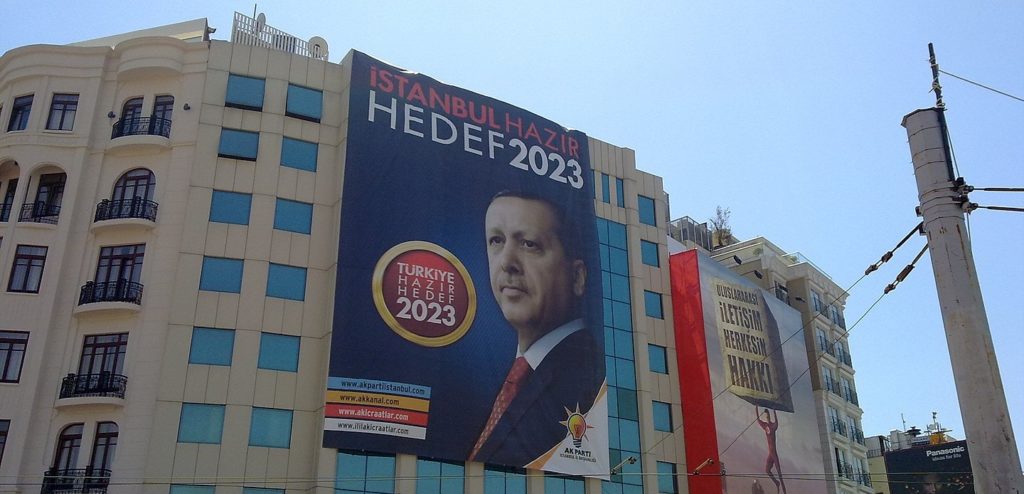
Recep Tayyip Erdoğan’s 2018 presidential election victory appeared to seal his party’s domination over Turkey’s politics until the end of his term in 2023, or even 2028. Since this victory however, he has presided over an ailing economy. The Turkish lira has plummeted, foreign reserves have shrunk as the Central bank intervened to stabilise the currency, and external debt mounted until Qatar, in May 2020 gave the country’s economy a temporary reprieve.
Concurrently, a number of “rising stars” are waiting in the wings. These include the, 2019 İstanbul mayoral election winner, Ekrem İmamoğlu, and former Erdoğan ally Ali Babacan . They are both preparing for the post-Erdoğan era by cultivating their charisma and political capital, causing concerns over Erdoğan’s re-election chances.
Erdoğan sought to deflect attention from the country’s woes through a controversial hard power projection exercise. Turkey’s involvement in Syria where it is responsible for the administration of territories it has occupied, its military presence in Libya, and Iraqi Kurdistan, and its Blue Homeland maritime doctrine have all been presented within the country as evidence of Turkey’s regional strength.
It was against this backdrop that the COVID-19 pandemic reached Turkey. From the outset, the government sought to take narrative control of the spread of the virus in order to mitigate the potential cost and to deflect criticisms that might give an advantage to its opponents.
Erdoğan, reluctant to introduce a full lockdown, called for businesses to stay open and keep the economy’s “wheels turning“, and the government was slow in implementing measures that would hurt the fragile economy, and its own survival.
As unions accused it of disregarding the risk to workers, and Turkey’s reporting of COVID-19 cases was scrutinized by experts who suggested that cases and fatalities were underreported, the government took punitive measures to control criticism.
Medical personnel were reprimanded for speaking out on social media. 410 people were detained for “provocative and abusive” posts, including seven journalists, and TV channels were fined for their coverage, including Habertürk, whose medical expert insinuated that there were many undiagnosed cases, far exceeding confirmed case figures.
Such measures, combined with the government’s control of Turkey’s main media allowed Erdoğan to project an image of strong leadership and claim global recognition for Turkey’s contribution in combatting the pandemic. Erdoğan launched a donation campaign to support the needy, while he blocked a similar drive by his rival Ekrem İmamoğlu, to starve him of public attention.
Pro-government media praised Turkey’s pandemic management, benefits and social support measures, the construction of two pandemic hospitals “within 45 days”, and the government’s “Economic Stability Shield” programme. Focus was also placed on the government’s preferred power projection narrative of Turkey as a global actor, highlighting Turkey’s sending of medical supplies, personal protective equipment, medicines and ventilators to hard-pressed countries, and their expressions of gratitude.
Erdoğan’s control of the pandemic narrative seems to be paying dividends, with his approval rating recovering from February’s 41.1 percent to 55.8 percent in March with his “strong leadership” projection appealing to supporters from the opposition parties.
COVID-19 has revealed that Turkish voters might be attracted to “strong leadership” more than “democratic promise” and has, perhaps, dismissed rumours of the demise of populism as no more than wishful thinking.
Spyros A. Sofos is a Research Coordinator in the Center for Middle Eastern Studies at Lund University.
Image by Myrat – CC BY-SA 3.0
